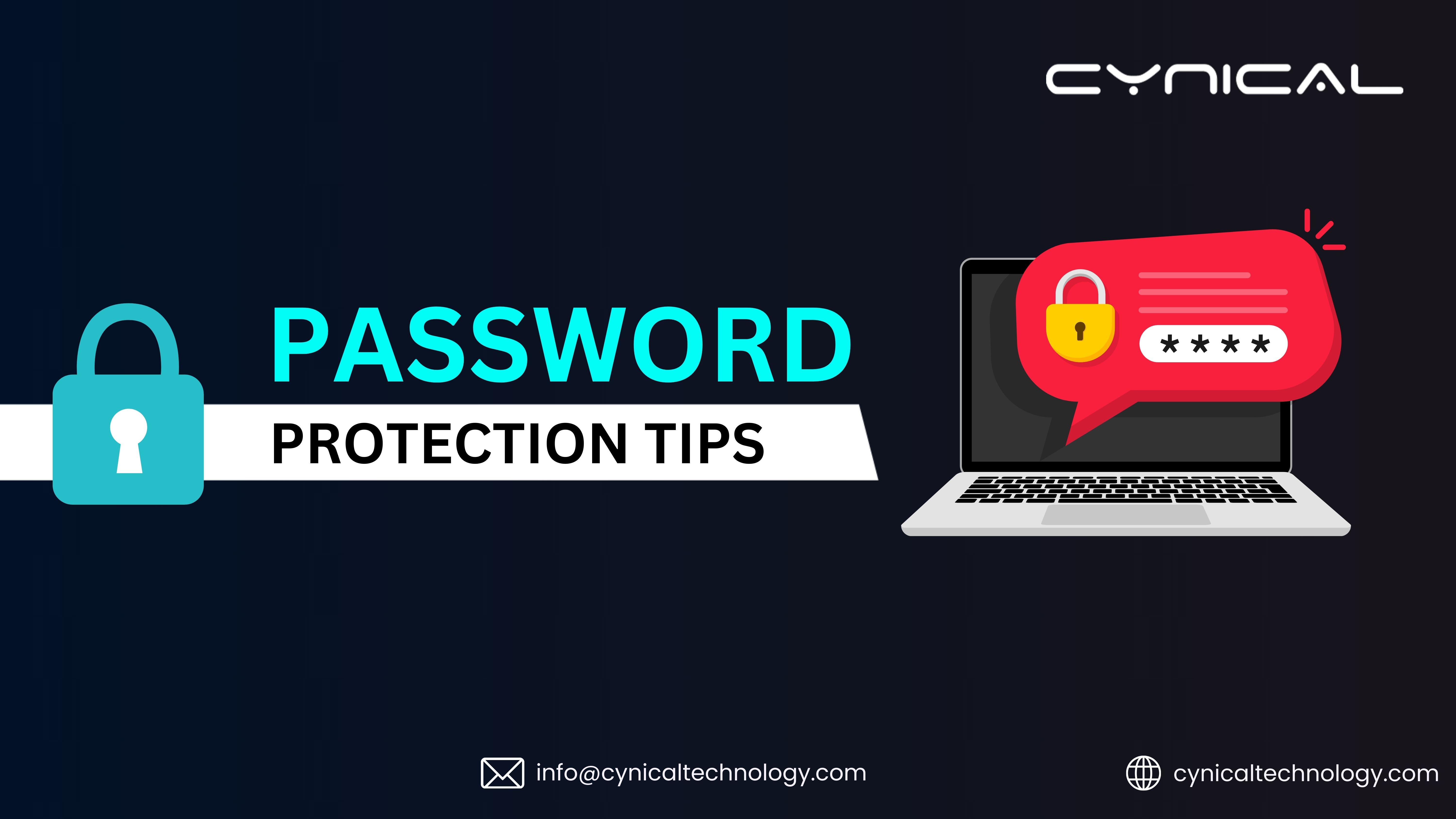- July 31, 2024
- Posted by: Bikash Sharma
- Category: Awareness

Essential Tips to Safeguard Your Passwords from Breaches
In an era where our lives are increasingly digital, the importance of strong password protection cannot be overstated. From social media accounts to online banking, our personal and professional information is often protected by a single line of defense: our passwords. Unfortunately, this makes them prime targets for cybercriminals. As such, understanding and implementing robust password protection strategies is crucial for safeguarding our digital identities. This blog provides an in-depth guide on creating and maintaining strong passwords, ensuring your online security.
The Importance of Strong Passwords
Passwords are the first line of defense against unauthorized access to your accounts. A strong password can significantly reduce the risk of cyberattacks, protecting sensitive data from being compromised. With the rise of sophisticated hacking techniques, the need for complex and unique passwords has never been greater. Simple or commonly used passwords can be easily cracked using methods such as brute force attacks or dictionary attacks, leaving your accounts vulnerable.
Characteristics of a Strong Password
To create a strong password, consider the following characteristics:
- Length: A strong password should be at least 8 characters long. The longer the password, the harder it is to crack.
- Complexity: Use a mix of uppercase and lowercase letters, numbers, and symbols. This adds complexity, making it more challenging for hackers to guess or crack.
- Unpredictability: Avoid using predictable patterns or sequences, such as “123456” or “password.” Also, steer clear of common substitutions like “P@ssw0rd,” which hackers can easily decipher.
Tips for Creating and Protecting Passwords
1. Create Unique Passwords for Each Account
Using the same password across multiple accounts is a significant security risk. If one account is compromised, all your other accounts are at risk. Create unique passwords for each of your accounts, especially for critical services like email, banking, and social media.
2. Avoid Personal Information
Personal information, such as your name, date of birth, or names of family members, should never be used in your passwords. This information can be easily obtained through social engineering or public records, making your passwords vulnerable.
3. Do Not Use Common Words
Avoid using dictionary words, common phrases, or predictable substitutions in your passwords. Hackers use tools that can rapidly test every word in the dictionary, including variations and substitutions. Instead, consider using a random combination of words, numbers, and symbols.
4. Keep Your Passwords Secret
Never share your passwords with anyone. Sharing passwords increases the risk of them being leaked or misused. Keep your passwords confidential and secure, even from friends or family.
5. Regularly Change Your Passwords
Change your passwords every 3 to 6 months. Regularly updating your passwords reduces the risk of them being compromised. Even if a hacker has obtained your old password, it will be useless once you change it.
6. Use a Password Manager
Password managers can help you generate, store, and manage complex passwords for all your accounts. They encrypt your passwords, providing an additional layer of security. This way, you only need to remember one master password.
Best Practices for Password Management
1. Enable Two-Factor Authentication (2FA)
Two-factor authentication (2FA) adds an extra layer of security by requiring a second form of verification in addition to your password. This could be a code sent to your phone, a fingerprint scan, or a hardware token. Even if a hacker obtains your password, they would still need the second factor to access your account.
2. Be Wary of Phishing Attacks
Phishing attacks are designed to trick you into revealing your passwords or other sensitive information. Be cautious of emails, messages, or websites that ask for your password. Always verify the source before entering your credentials.
3. Monitor Your Accounts
Regularly check your accounts for any suspicious activity. If you notice any unauthorized access or changes, change your password immediately and notify the service provider.
Conclusion
Protecting your passwords is essential for maintaining your online security. By following these tips, you can create strong, unique passwords that will help safeguard your personal and professional information. Stay vigilant and make password protection a priority to keep your digital life secure.
At Cynical Technology, we are committed to helping you enhance your cybersecurity measures. For more tips, insights, and professional cybersecurity services, visit Cynical Technology or contact us at info@cynicaltechnology.com.
